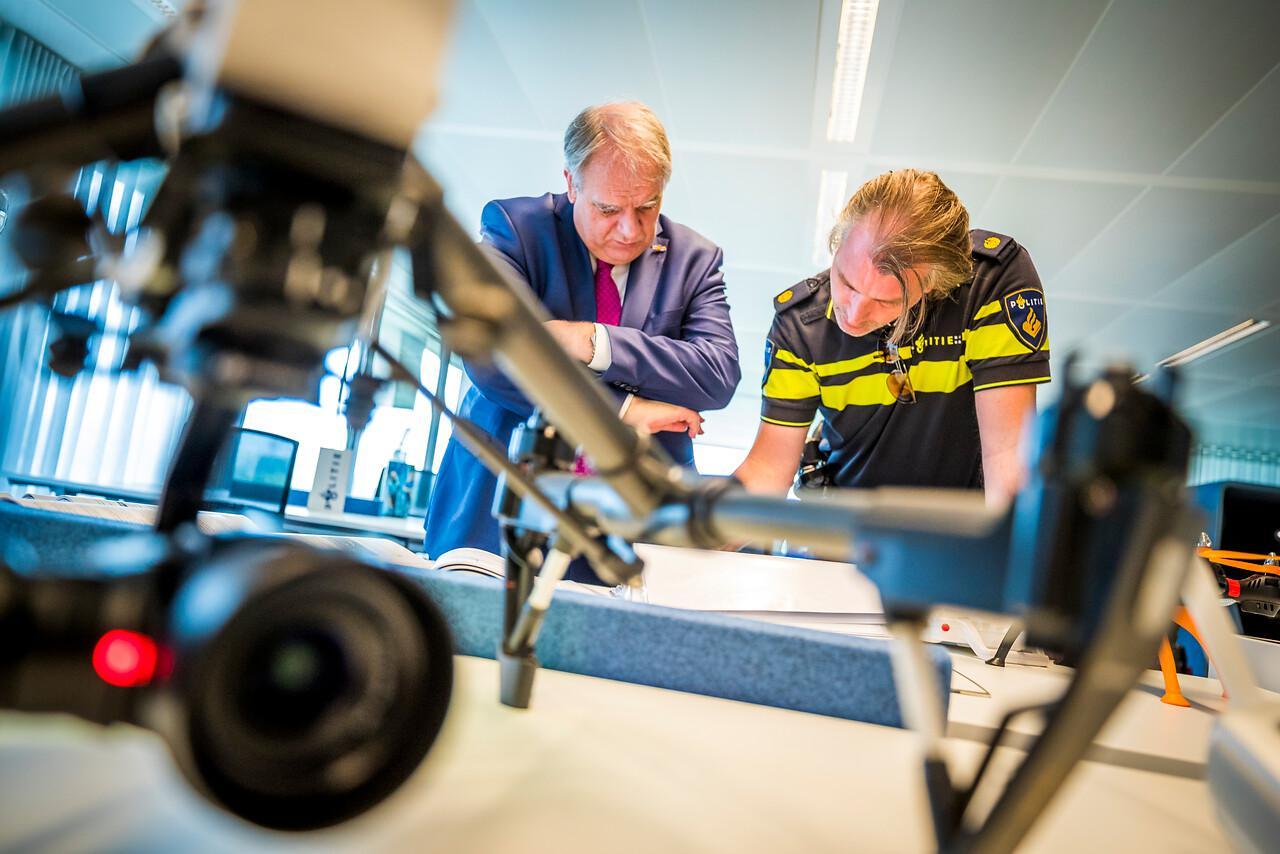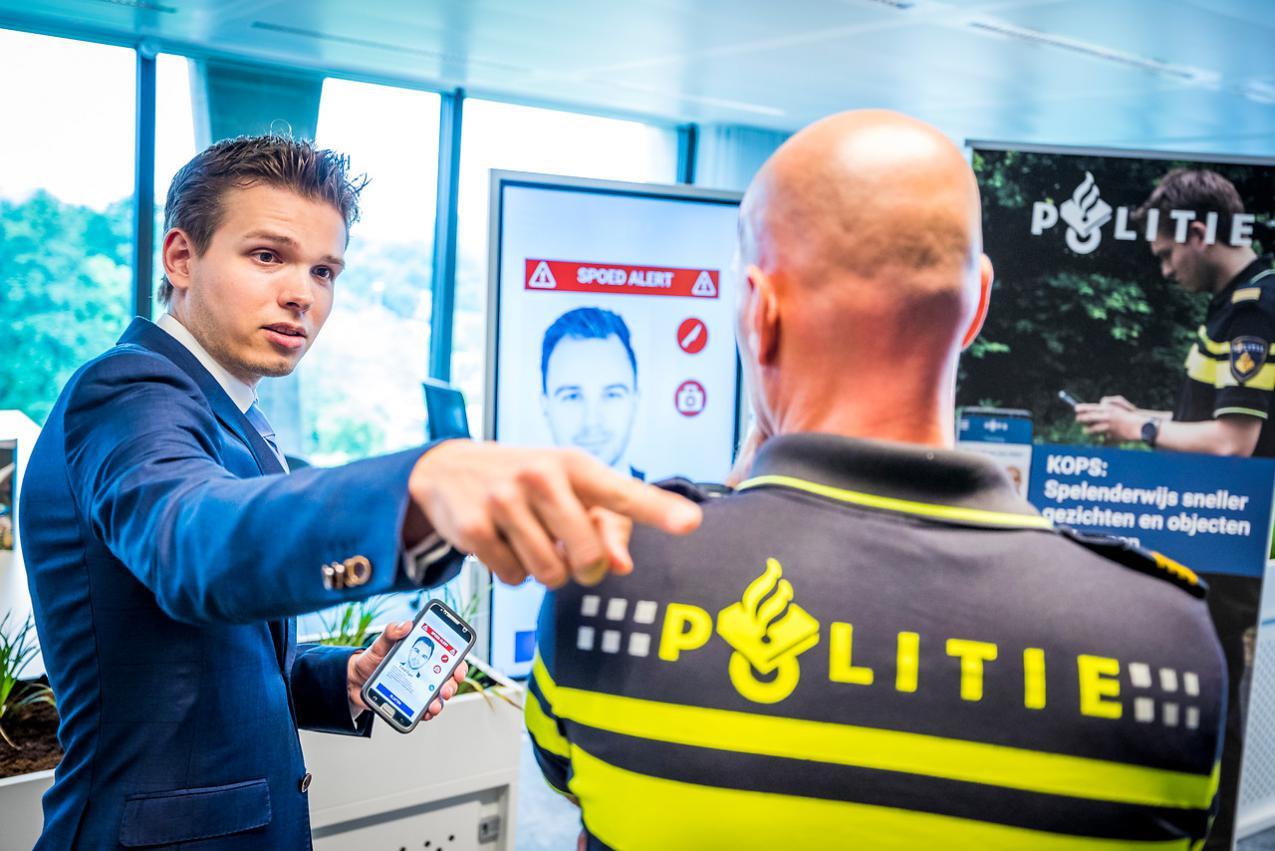In 2018, the iLab of the National Police, Limburg Unit opened its doors at Brightlands Smart Services Campus in Heerlen. An innovation lab where the police work on technological solutions in the fight against crime. In the meantime, the lab, with an average staff of ten specialists, has come up to speed. They are working on more than twenty projects that are one by one finding their way into everyday practice.

It's an open door, but policing is changing rapidly. Cybercrime is a growing threat to businesses and individuals. International drug trafficking is dominated by crime syndicates with every resource at their disposal.
More pressure
At the same time, the pressure on the police force is increasing due to growing staff shortages, caused in part by the outflow of retired and experienced people. 'We need to fill about 17,000 positions. More efficient and effective is pure necessity,' says John Bloebaum, who works at the iLab in a liaison role with the police. 'We too have to use the latest techniques and resources, just like organized crime. Of course we also have specialists in house, but why would we want to discover and develop everything ourselves if we can also work together with specialists from other organizations and with researchers and students from the colleges? This is exactly why we started the iLab here on campus in 2018. In an ecosystem where knowledge and skills are shared and different parties work on digital innovations. As a police force, this allows us to make the step to new working methods much faster.'
Leaders
Leaders
The idea to join Brightlands Smart Services Campus with the iLab came from the Limburg Unit of the police. The national police force is now looking over Heerlen's shoulders. The national colleagues of the ICT departments in particular have known from the start what we are doing,' explains John Bloebaum. 'The police have started several innovation hubs and it is obviously not the intention that we invent the same wheel in different places. The police look for specific expertise in a certain region and link projects to it. Now we are fulfilling a pioneering role here in Heerlen, because a full ecosystem is already functioning here.'
Co-creation
The co-founder of the iLab refers to researchers, teachers and students from both Maastricht University and Zuyd University of Applied Sciences, who are working with governments and businesses on innovations with, for example, blockchain and data processing. 'We meet at events and in programs like Techruption. A lot of experience and knowledge has been built up quickly, which is ideal for us as police to be able to use it and to learn about and use the latest technologies in co-creation. Scientific testing and validation is particularly important for us. It goes without saying that the results will be used nationwide.'
Police robot
Police robot
The iLab is currently working on some 20 projects, some of which have already found their way into police practice. A nice example is the police robot, christened Djack. It helps the public to process crime reports,' says Danny Timmermans, a colleague of John Bloebaum at the iLab. 'Every day, more than 50 citizens call Report Crime Anonymously. The officers on duty spend an average of 10 minutes tapping out the report and sending it to the right place. The robot takes two minutes and automatically forwards the report to the appropriate department or base unit. We have tested the technology extensively and scaled it up to the rest of the Netherlands.
Slimbering
The intention is to refine the technology and make the robot smarter. Danny Timmermans: "For example, to be used for theft reports or other reports. In the future, Djack will also be able to see connections, ask questions interactively and give tips. We also think that Djack will then have a function in the investigation by quickly searching for and combining information. It is not that the robot replaces a human, he is part of the team. He does the boring, repetitive work, 24 hours a day without grumbling or getting tired. And without mistakes. This will give the police officers more room again for more challenging work.'
Thermometer
Another innovation from the iLab: the Team Thermometer, a tool for employees to evaluate the working day. Danny Timmermans: "This is a social innovation. Colleagues can use an app to indicate how they experienced the day with what degree of stress and emotion. They also give a grade, anonymously. The data gives managers a picture of the teams and how they experience their work. This, in turn, can be the basis for entering into a dialogue with each other in order to organize the work better. This app can also be made available to other organizations and companies. This also applies to the Helios program with which we analyze, interpret and make visible big data, developed with the Data Science lectorate of Zuyd University. Everything we do here in the iLab is paid for with public money. That should benefit society as much as possible.'

New talent
The iLab on campus now has over ten people. There will be more in the future. There is currently an active search for ICT and data specialists. John Bloebaum: "We train people from our own corps as much as possible. But new talent is more than welcome, the technological challenges are getting bigger and more complicated. Because we already have intensive contacts with Zuyd and UM, we are able to fill trainee posts and to bind young people to the police force sooner. They see that the police do much more behind the scenes than writing tickets. They fight serious crime with the most advanced technical means.'